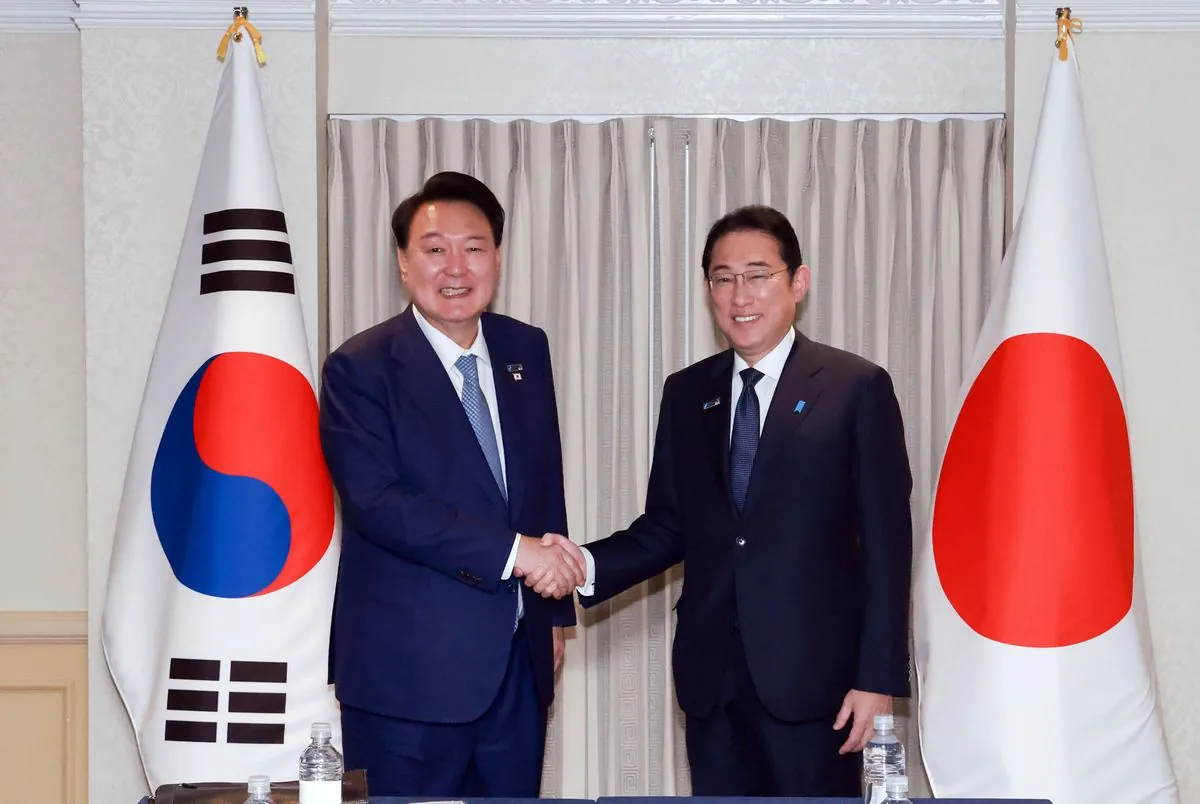Fumio Kishida, Japan's outgoing Prime Minister, is embarking on a two-day visit to South Korea today, September 6, 2024. This diplomatic endeavor comes less than a month before he leaves office, aiming to reinforce the recently improved relations between the two East Asian nations.
The visit, initiated at Kishida's request, marks the 12th meeting between him and South Korean President Yoon Suk Yeol. This frequency of high-level interactions underscores the significant progress made in bilateral ties since Yoon took office 18 months ago.
Japan and South Korea, both key U.S. allies, collectively host approximately 80,000 American troops. Their cooperation is crucial for regional security, especially in light of China's growing influence and North Korea's nuclear ambitions. The importance of this alliance was highlighted during the Camp David summit in 2023, where both leaders, along with U.S. President Joe Biden, pledged to enhance trilateral cooperation.
However, the path to improved relations has not been without obstacles. Historical grievances stemming from Japan's 1910-1945 colonization of Korea have periodically strained ties. A significant breakthrough came in March 2023 when Yoon proposed a solution to the long-standing issue of compensating Korean forced laborers from the colonial era.
"If President Yoon is truly the president of the Republic of Korea, he must not let the visit become an occasion to advertise Kishida's achievements. Our people will no longer tolerate the Yoon Suk Yeol government undermining national interest with a subservient diplomacy toward Japan."
This move, while improving diplomatic relations, has faced domestic criticism in South Korea. The main opposition Democratic Party has accused Yoon of being overly accommodating to Japan, highlighting the delicate balance required in addressing historical issues while pursuing future-oriented cooperation.
As Kishida prepares to step down, attention is turning to the upcoming Liberal Democratic Party (LDP) leadership election on September 27, 2024. The outcome of this election could significantly impact the future of Japan-South Korea relations. Potential candidates like Shinjiro Koizumi, known for his visits to the controversial Yasukuni Shrine, and Shigeru Ishiba, with his strong stance on Japanese military ambitions, could present new challenges to the bilateral relationship.
Looking ahead, the stability of Japan-South Korea relations faces uncertainties. The limitation of South Korean presidents to a single five-year term means that Yoon's successor in 2027 could potentially shift the country's approach to Japan. Additionally, unresolved issues such as the Liancourt Rocks (Dokdo/Takeshima) dispute and the "comfort women" controversy continue to loom over bilateral ties.
As Kishida concludes his tenure, this visit serves as a testament to his efforts in improving Japan-South Korea relations. The challenge now lies in ensuring that this progress remains resilient in the face of leadership changes and ongoing historical sensitivities.
